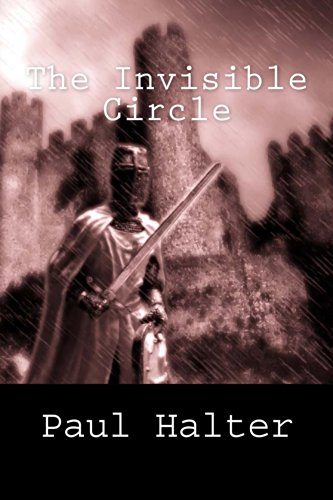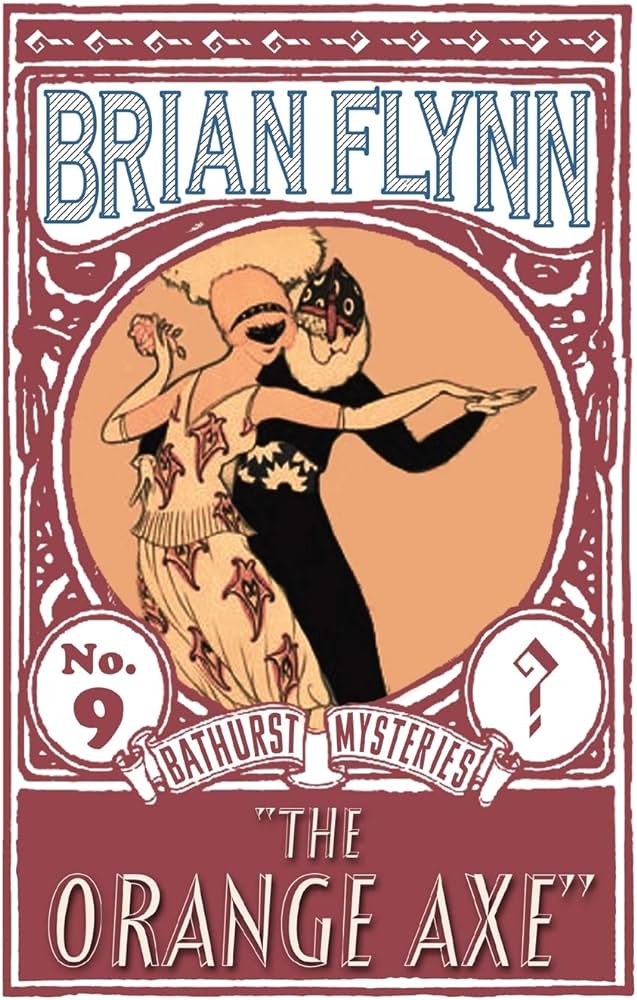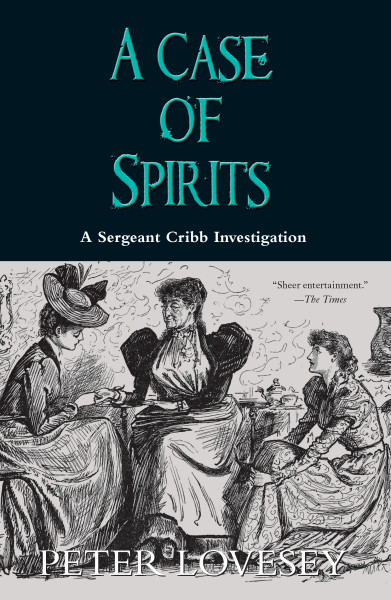
Originally Published 1996 as Le Cercle Invisible
English translation first published in 2014
Seven people receive invitations to a ‘singular experience’ during a weekend in Cornwall in a castle reputedly built on the site of King Arthur’s, and situated on an island tenuously connected to the mainland. The sinister host announces that a murder will be committed that night, shows them a sword embedded in a stone (which none of them is able to pull out) and a golden chalice which he claims is the Holy Grail sought by the Knights of the Round Table. Thus begins a nightmarish series of events including impossible murders, the disappearance of the Grail, and communication with the mainland cut off. Has the vengeful king indeed returned? And is there any connection to the recent release of the host’s homicidal half-brother?
Several months ago in the comments section of my review of The Seventh Hypothesis I came to a realization about Paul Halter’s novels. I have sometimes struggled with the theatrical, gothic elements in his novels because they seem contrived for the reader’s entertainment rather than because they make the killer’s plans better.
The Invisible Circle, like The Seventh Hypothesis, is a consciously theatrical mystery. What I mean by this is that the theatrical elements of the scenario Halter creates are intentionally created by a character within the story to appear theatrical rather than to try to convince us that supernatural events are actually occurring.
There are multiple theatrical aspects to Halter’s scenario which are introduced early in the story, each evoking Arthurian legends. Before the characters even arrive on the island off the coast of Cornwall they are aware that the area is reputed to be the real location of King Arthur’s castle. Later the eventual victim gives each of the characters an Arthurian name, tells them that he will be murdered within an hour, identifies a killer and proceeds to lock himself within a room telling everyone that he must not be disturbed within that time. When he is discovered, he is found stabbed to death with a sword that they had previously seen firmly lodged in a stone.
Though I had been worried that those theatrical elements would be an afterthought or used as little more than color for this mystery I was very pleased when I realized that they had significance to piecing together what was happening and why it was happening. By the end of the novel we understand why the killer decides to create an apparently impossible crime and even if we think their actions are improbable, they are at least logical.
The puzzle of the murder itself is rather brilliant, benefiting in part by the other characters being able to clearly establish the geography of the room and its contents prior to it being sealed with the victim inside. This is a side effect of the theatricality or artificiality of the premise of the murder – because it is announced by the victim the characters are able to state definitively what they witnessed within the room and that no one interfered with the door during the hour in which the murder took place. The reader has to not only work out how the killer gained access to the room but also how they extracted the sword from the stone during that hour.
My usual stumbling block with these sorts of impossible crimes, particularly from Halter, is in understanding the killer’s thinking. My expectation is not that the crime is likely to have been committed in the way described but that the characters’ actions make sense given their motive and the resources at their disposal. I think Halter does a very good job of creating a solid explanation for why the killer decides to carry out a murder in this fashion and that he plays absolutely fair with the reader in laying the clues for us to deduce what is going on. I may not consider such a murder likely but I could understand how it might make sense to the killer to commit their crime that way.
Mechanically I think there are some aspects of the crime that work extremely well. Certainly I think the mystery of how the sword in the stone could have been used is cleverly explained. Also I was in no doubt of the killer’s movements and that they had the opportunity to carry out the murder which helped make the solution even more credible.
Now that is not to say that isn’t at least some coincidence and luck involved in the killer’s plans coming together. Their plan ultimately has some flaws, one of which is that once you attack the situation logically the killer’s identity becomes clear even if their motivation is not immediately so. Still, while I correctly guessed at the killer’s identity very early in the story it took me a while to feel like I could prove it.
The bigger issue is that there is a key aspect of the plot that relies on some astonishingly poor observational skills on the part of the cast of characters. Reviews by Puzzle Doctor and Ben both identify this as something that would be hard to believe could work as effectively as it does here and they are each right to do so. It didn’t bother me given that Halter signposts the theatricality of this scenario and that once you understand what has happened it can be used as evidence to solve the bigger mystery but I would agree that the killer gets extremely, almost unbelievably, lucky in that moment.
Having voiced my appreciation for Halter’s plotting and use of the Arthurian legends, I must say that the novel is less impressive in terms of its cast of characters. With the exception of Madge, the host’s niece, they feel functional rather than three-dimensional. I think this is appropriate for the type of plot Halter creates here but I mention it because this approach to characterization is not to everyone’s tastes.
So, where does that leave me overall? The Invisible Circle is not my favorite Halter novel but I think it is one of the most enjoyable. The pacing is brisk and each chapter seems to end with a fresh revelation that spins the case off in a new direction or makes the scenario seem even more dramatic.
Though I think the killer’s plan was enormously risky, I think Halter does explain the reasoning behind it and I appreciated that it plays fair, providing a solution that the reader can work out by a process of logical deduction. For those reasons I could overlook the killer taking what seems like several enormous risks and appreciate what they brought to this otherwise very cleverly constructed story.




Leave a comment